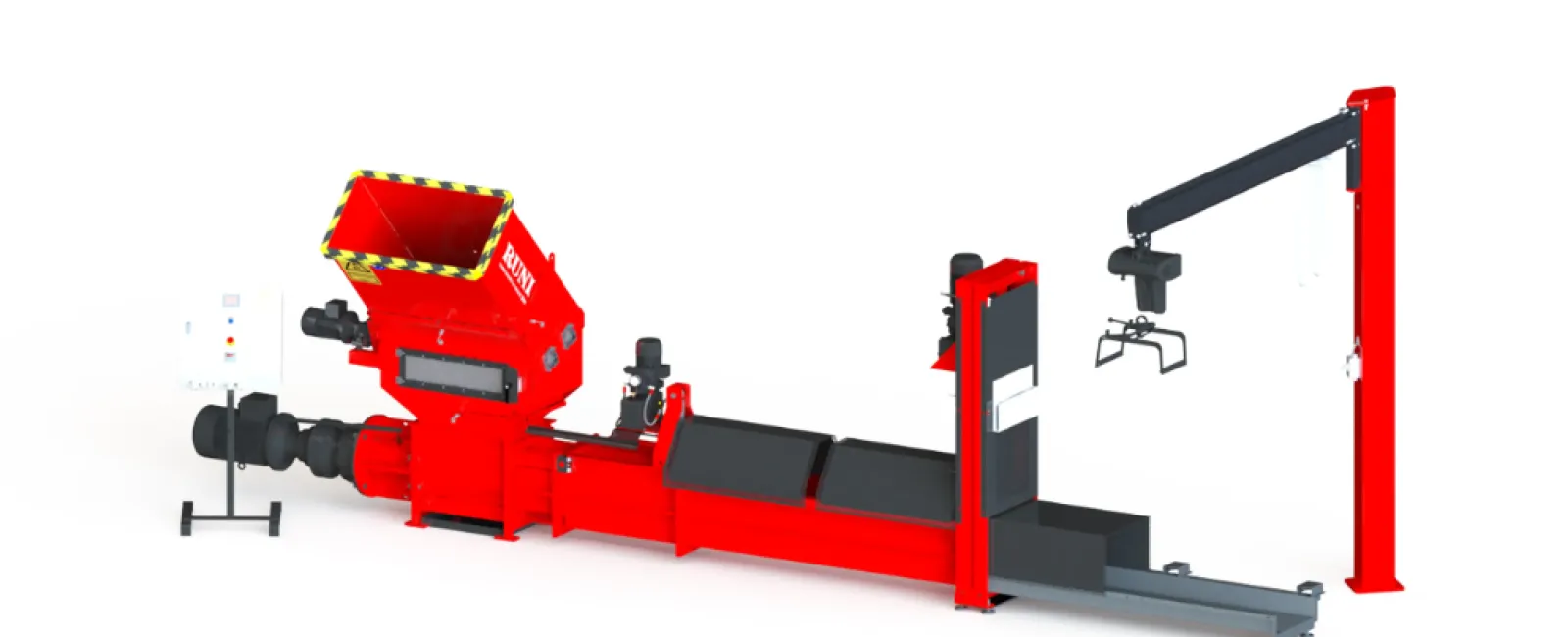November 21, 2025
Most compactors do not fail overnight. They wear out slowly because of small issues that were easy to prevent. With the right habits and a bit of planning, you can easily add 5-10 years to your compactor's life.
Here is how to do it, step by step.
1. Start With Proper Operator Training
A huge amount of compactor damage comes from simple misuse, such as overloading hoppers, forcing jammed material, or running the machine when it does not sound right. None of that is malicious. Most of the time, operators just were never shown what "normal" looks and sounds like.
Give your team clear, simple guidelines:
-
What materials are allowed and what are not
-
Maximum load levels in the hopper
-
What to do if the compactor jams
-
When to stop and call maintenance instead of "just running it one more time"
Post easy-to-read instructions right at the control panel and review them during shift changes or toolbox talks. A 15-minute training can easily prevent a five-figure repair later.
2. Build a Preventive Maintenance Schedule
Compactors are designed to run hard, but not to run unattended.
Instead of waiting for something to break, set up a simple preventative maintenance plan with daily, weekly, and quarterly tasks. This includes regular inspections, lubrication, adjustments, and performance checks to catch issues early.
Some practical ideas:
Daily or per shift
-
Clear debris from around the hopper and charge box
-
Check for obvious leaks, unusual noises, or slower cycle times
-
Make sure safety switches and guards are in place
Weekly
-
Inspect hydraulic hoses for wear, cracks, or rubbing points
-
Check fluid levels and look for milky or discolored oil
-
Inspect ram guides, wear plates, and visible welds
Monthly or quarterly
-
Grease all lubrication points according to the manufacturer manual
-
Inspect electrical connections for heat discoloration or loose terminals
-
Check anchor bolts and structural fasteners for movement
3. Watch What You Put Into The Compactor
Not all waste is compactor-friendly.
Industrial waste compactors, including screw compactors like the Runi systems, are designed for specific material streams and moisture levels. Pushing the wrong material through can cause jams, broken components, or unnecessary wear.
A few rules of thumb:
-
Avoid large unshredded metal pieces unless your system is rated for them
-
Do not feed in long, stringy items that can wrap around the screw or ram
-
Be careful with liquids if your unit is not designed for liquid separation
-
Keep out random "surprise" items like tools, pallets, or heavy hardware
It helps to label collection points and train staff on what belongs in the compactor and what should be diverted elsewhere. Small upstream changes protect your equipment downstream.
4. Protect Your Hydraulic System
Your hydraulic system is the heart of the compactor. Treat it that way.
Overheated, dirty, or low hydraulic oil is a leading cause of premature failure in cylinders, pumps, and valves. A few simple habits can dramatically extend hydraulic life:
-
Stick to the manufacturer's oil change intervals
-
Use the correct hydraulic oil grade for your climate and duty cycle
-
Replace filters on schedule, not just when there is a problem
-
Keep an eye on operating temperature if your unit has a gauge
If you notice sluggish performance, noisy pumps, or erratic ram motion, do not ignore it. Those are signs that something in the hydraulic system needs attention.
5. Do Not Ignore Electrical And Control Issues
Modern compactors often include sensors, PLCs, and safety circuits. That is great for safety and efficiency, but it also means you should not ignore:
-
Intermittent start/stop issues
-
Random fault resets that "go away" when someone cycles the power
-
Trips that keep recurring at the same point in the cycle
Catching electrical problems early protects motors, reduces nuisance downtime, and helps your compactor age gracefully instead of failing suddenly.
6. Keep It Clean And Respect Safety Procedures
A compacted, dirty machine runs hotter and wears faster.
Regular cleaning around the compactor does more than make things look nice. It also:
-
Prevents debris from blocking sensors or limit switches
-
Reduces the risk of fire in dry paper and cardboard environments
-
Makes leaks, cracks, and damage easier to spot
Always follow lockout/tagout procedures and your company's safety rules before cleaning or working on the machine. When in doubt, bring in a trained technician instead of asking an operator to "figure it out" on their own.
Ready To Get More Life Out Of Your Compactor?
If you want your compactor to last another 5-10 years, you do not need a complicated plan. You need consistent operator training, a realistic maintenance schedule, clean operating conditions, and a trusted service partner to back you up.
Reach out to the Crigler team to schedule a service visit, discuss a preventative maintenance plan, or talk through whether refurbishment makes sense for your existing compactor.



